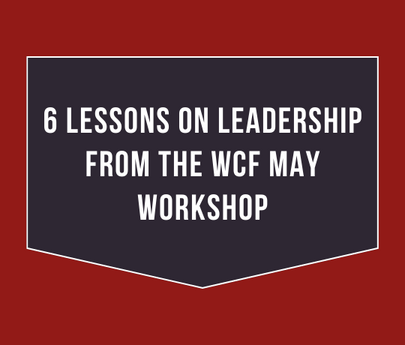Current and future female leaders from across financial services discussed the challenges of being a female leader and what it takes to become a great one. Here are just a few takeaways.
.png?width=895&height=597&name=SB%20Preview%20Images%20(10).png)
1. Vulnerability and sharing openly helps make you trustworthy and approachable.
Workshop host Jessica Atkinson (IT Director of Program Management at ERC) shared that she was once so focused on work that she neglected to share any elements of her personal life with her co-workers. As a result, her team found her difficult to approach and untrustworthy.
Jessica’s story prompted discussion among participants about the importance of vulnerability and sharing openly with colleagues. There was a general consensus that bringing elements of yourself into the workplace helps make others feel connected with and comfortable around you. When your team is comfortable, they’ll more readily share challenges, accomplishments, and ideas with you.
2. Want your reports to grow? Trust them.
Micromanagement is discouraging to people who have motivation to grow and get their work done. Of course, not everyone has that work ethic. Some people need more help and encouragement than others. Ask yourself: Do they have the skill? Do they have the will? You’ll know how involved you have to be based on your answers to those questions. If they have both, give space and have faith.
After some discussion, Melissa St Dennis (Collateral Control Officer at Alaska USA) and her workshop team agreed that, “Believing in and trusting your staff inspires self-confidence and a better working relationship.” Your trust will let them know that you believe in them and their abilities.
3. More perspective = better results.
There’s a tendency for leaders to guide conversations and be the main contributors to meetings. But, Bekah Luebcke (Vice President of Operations at Crown Asset Management) and her team agreed that gaining the perspective of everyone brings better results.
As a leader, you should try to create a level of comfort so your team feels they can speak up and share their thoughts. This can be difficult if you have shy colleagues. One easy way to get quiet colleagues to participate is to send an outline of planned meetings in advance. They’ll then have time to think through their thoughts and what they might like to share. As Bekah put it, “Advanced information allows more engaged conversation in the moment.”
Other ways to increase participation and get more perspective: create a detailed agenda that you and your team can follow along with, assign topics or speaking points before the meeting begins, or send a follow up email so people can contribute thoughts afterward.
4. Many of us struggle to delegate tasks.
Being a leader often means stepping back from the day to day tasks and looking at the bigger picture. For those in managerial roles, that includes delegating tasks to direct reports. Yet, many women agreed that doing so is a real challenge.
Several attendees, including Tiffany Hill (Project Manager at Spring Oaks Capital), shared that one of their biggest takeaways from the workshop was that “You can’t grow until you let go.” By letting go of some of the day to day tasks, you give yourself more time and space to contemplate larger goals.
5. Silence is an understated virtue.
Attendees drew two conclusions about communication:
1. We often listen to respond when we should listen to understand.
Listening takes a lot of work and concentration. We feel we need to respond and have an immediate answer in every conversation. This often leads us to think when we should really be concentrating on what’s being said. Truly empathetic listening means listening to understand and not to respond. Sometimes, that means asking for time to think about what’s been said and responding later.
After the event, Susana Kelly (Executive Office Administrator at Numeracle) shared, “The business of work can force you to disregard a conversation, but I am focusing on listening to others without trying to answer quickly and move onto the next thing.”
2. We have a tendency to speak without being thoughtful about what we say.
If you don’t think through what you say before you say it, you risk not only wasting time but also losing the respect of others. As Penny Campbell (Vice President of Business Development at Jefferson Capital Systems) put it, “If you find people aren’t listening to you while you speak, evaluate why. Are you speaking with intent and purpose? Or are you someone who constantly talks or complains, and, therefore, people are tuning you out? Sometimes self-assessment is necessary.”
Intentional listening and speaking could go a long way in making us trustworthy, valued contributors and team members.
6. Many of us struggle to identify our strengths, but easily identify our weaknesses.
At the end of the workshop, hosts Jessica Atkinson and Kelly Paul (SVP of Sales at ERC) helped attendees create affirmation statements. To begin the process, they asked everyone to identify their strengths and areas for improvement. Participants quickly jotted down things they felt they could work on, but really struggled to identify their strengths.
We know our weaknesses, but aren’t doing enough to recognize our own strengths. One of our biggest takeaways was that we can all work on recognizing and vocalizing the things that we are great at.



-Nov-07-2023-06-38-17-8684-PM.png)